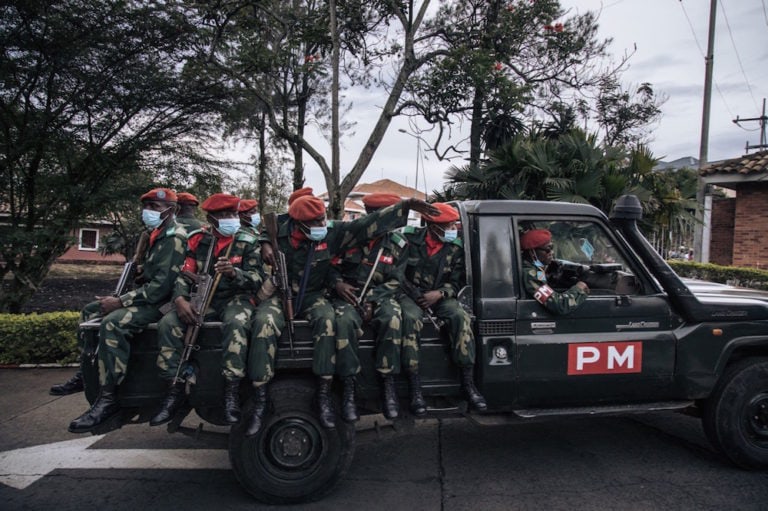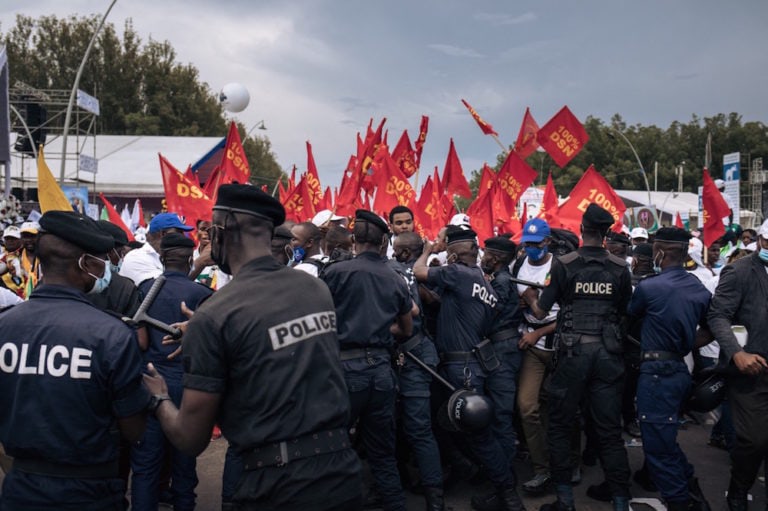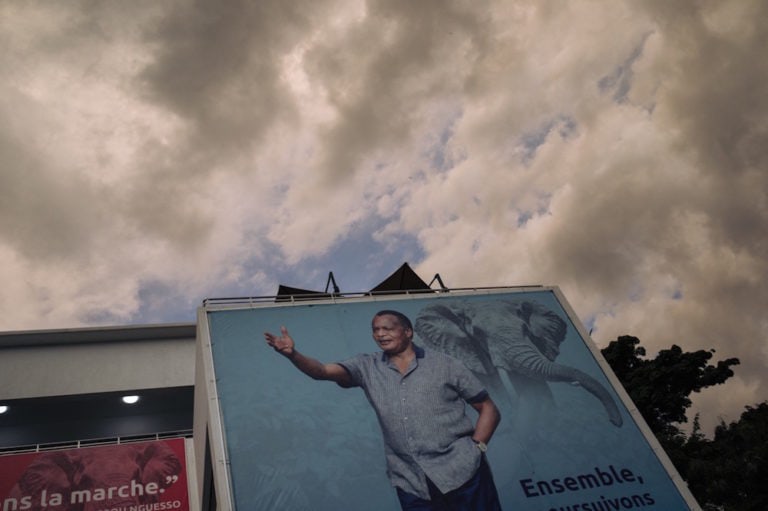The months-long suspensions were imposed on "L'Amicale" and "La Voix Du Peuple" in reprisal for articles critical of government officials.
(CPJ/IFEX) – New York, December 20, 2011 – Authorities in the Republic of Congo should immediately lift the months-long suspensions imposed last week against two private weeklies in reprisal for articles critical of government officials, the Committee to Protect Journalists said today.
On December 13, the state-run High Council on Freedom of Communication (known by its French acronym CSLC) banned “L’Amicale” from publishing for six months and “La Voix Du Peuple” for three months, according to news reports.
The council accused “L’Amicale” of “incitement to division and tribal and ethnic hatred, endangering peace, cohesion and national unity,” and violations of journalism ethnics over two columns that criticized the prevalence of northerners from President Denis Sassou-Nguesso’s Mbochi ethnic group in powerful government positions, according to local journalists.
The council accused “La Voix Du Peuple” of defaming and violating the privacy of Jean-Dominique Okemba, a presidential nephew and top aide, over an article headlined “A spitting image, hidden and rejected : Jean Dominique Okemba slow to recognize his first son Marcellin Kondé Okemba,” according to news reports. Okemba has publicly denied the contents of the story, according to local journalists. The council also accused the paper of defamation, violation of privacy, and “incitement to revolt, division and ethnic and tribal hatred” stemming from an article that alleged nepotism and abuse of power by members of the president’s Mbochi ethnic group, according to news reports.
“The suspensions silencing ‘L’Amicale’ and ‘La Voix Du Peuple’ protect authorities from legitimate scrutiny and criticism regarding issues of public interest such as the ethnic dimension of politics in the Republic of Congo,” said CPJ Africa Advocacy Coordinator Mohamed Keita. “We call on authorities in Brazzaville to immediately reverse these censorship orders, which undermine democracy in Republic of the Congo.”


